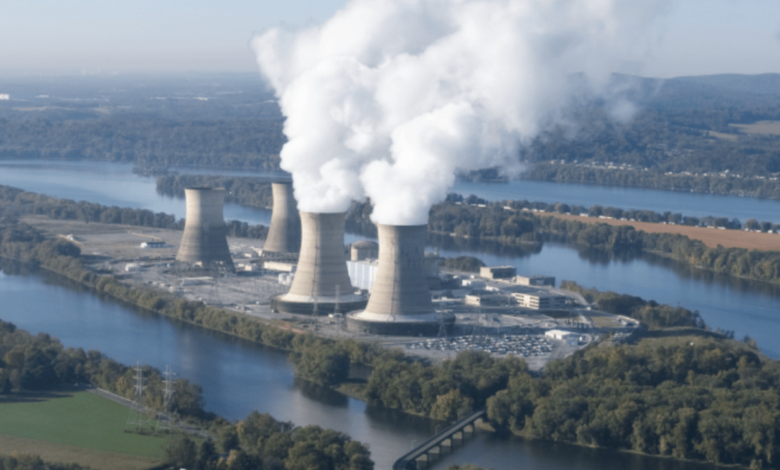Microsoft plans to restart the Three Mile Island nuclear plant that narrowly avoided disaster

Microsoft is in the midst of a deal that would bring the infamous Three Mile Island nuclear power plant back to life, according to reporting by The Washington Post. If the name sounds familiar, it’s because the Pennsylvania plant was home to a partial meltdown of one of its reactors back in 1979.
The deal would make Microsoft the plant’s sole customer for 20 years, meaning it’ll hoover up 100 percent of the power all for itself. Why does the company need so much juice? You can guess. It’s for AI, which is notoriously power hungry. Look, if it takes an entire nuclear power plant so we can ask Bing to whip up an image of Steve Urkel in space riding a skateboard, then we gotta do it. It’s the future… or whatever.
We’re restarting Three Mile Island Unit 1 as the new Crane Clean Energy Center! Through a 20-year agreement, Microsoft will use the energy from the renewed plant to help match the power its PJM data centers use with carbon-free electricity. 🧵
More info⬇️https://t.co/NfKGdJgMA0 pic.twitter.com/z9ydxDXw1U— Constellation (@ConstellationEG) September 20, 2024
Let’s break it down further. If this deal is approved by regulators, Three Mile Island will provide Microsoft with enough energy to power 800,000 homes. Again, no homes will be getting that energy, but don’t worry. Microsoft will be able to hold a live streaming event to show off some ghoulish new AI video generation tools or something.
I know I’m coming off as a real troglodyte here, but there is a silver lining. This could help Microsoft meet its pledge to power AI development with zero emissions electricity. It’s not as if these companies would give up on AI if there wasn’t a decommissioned nuclear power plant sitting around, so this move could help alleviate some of the strain that’s already being placed on our power grid due to ye olde artificial intelligence.
If approved, this would be a first-of-its-kind deal for a couple of reasons. A commercial power plant has never worked exclusively for one client before. It’ll also be the very first time a decommissioned power plant has come back online. It’s worth noting that the plant shut down five years ago for economic reasons, which has nothing to do with the partial meltdown from 1979. The current plan is for it to resume operations by 2028.
“The energy industry cannot be the reason China or Russia beats us in AI,” said Joseph Dominguez, chief executive of Constellation, the company that owns the plant. I’d take his jingoistic language with a grain of salt, however, as Constellation stands to make an absolute boatload of cash from this deal.
Let’s do some math. Yearly profits from a nuclear power plant averages $470 million. Microsoft will be the exclusive buyer of this energy for 20 years, which totals $9.4 billion. Constellation is spending $1.6 billion to get the plant going again, along with federal subsidies and tax breaks provided by the Inflation Recovery Act. This leaves $7.8 billion in sweet, sweet profit. That’s just a guesstimate, but you get the gist. The company does promise $1 million in “philanthropic giving to the region” over the next five years. That’s $200,000 a year.
To ensure that the local community fully participates in the economic benefits of restarting the facility, Constellation has committed an additional $1M in philanthropic giving to the region over the next five years to support workforce development and other community needs.
— Constellation (@ConstellationEG) September 20, 2024
This isn’t a done deal. There are many regulatory hurdles that Constellation will have to jump over. This includes intensive safety inspections from the federal Nuclear Regulatory Commission, which has never authorized a plant reopening. There’s also likely to be an inquiry into those aforementioned tax breaks, as all of the energy is going to one private company and not serving entire communities. But come on. Steve Urkel on a skateboard in space.
On the plus side, Constellation will need around 600 employees to run the plant, according to the New York Times. Jobs are good. Also, the company says it won’t be seeking any additional subsidies from Pennsylvania. The Palisades nuclear plant in Michigan is also looking to reopen for business, but it plans on servicing the local grid and not the gaping maw of AI.





